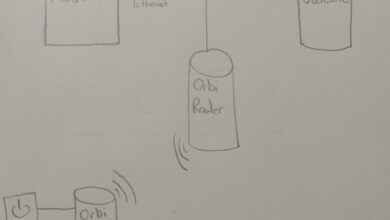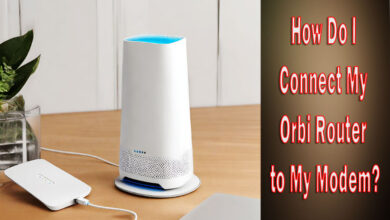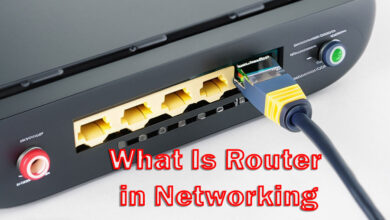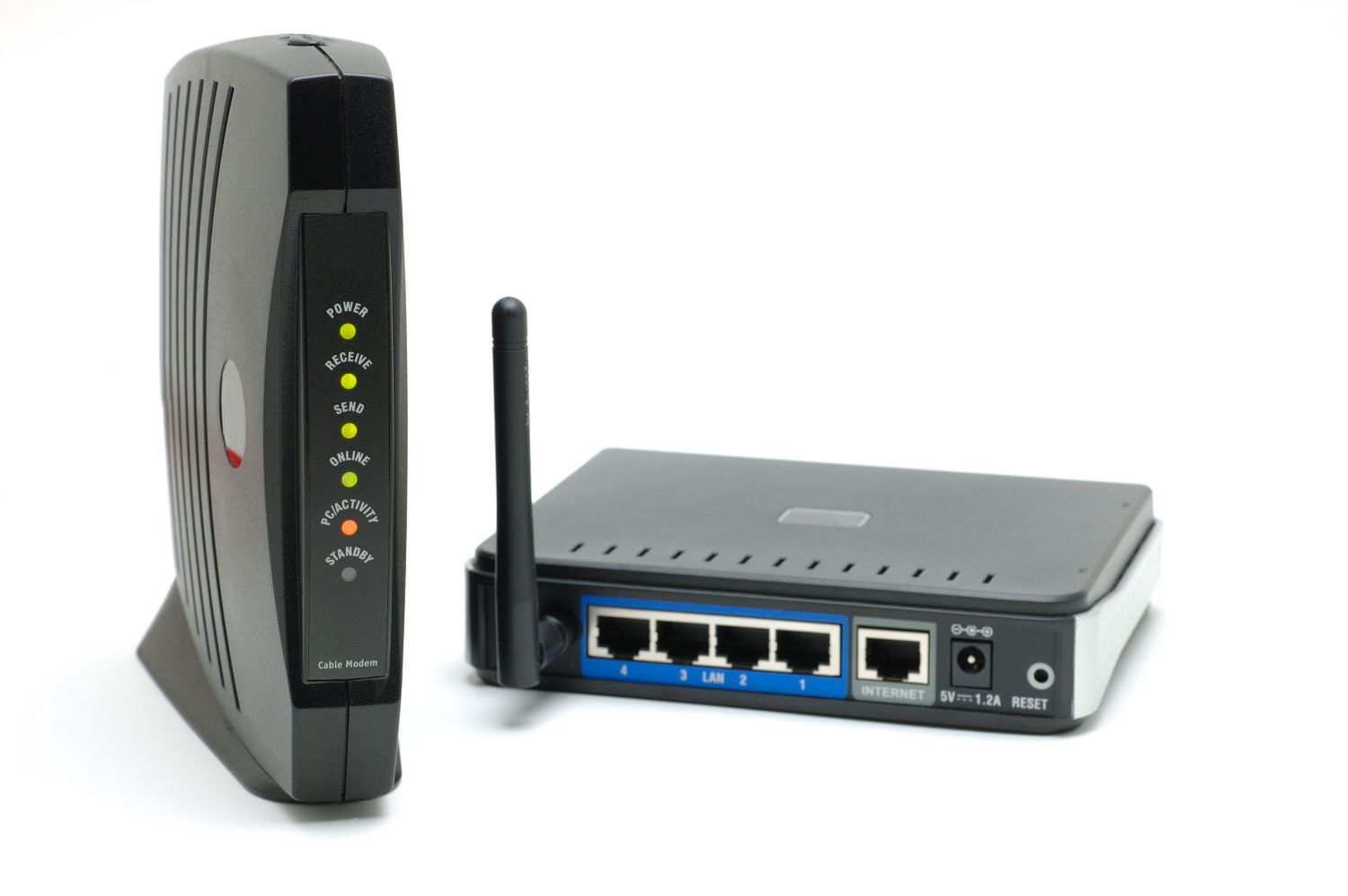Orbi Wired vs. Wireless Backhaul: Unleashing the Power!

Orbi wired backhaul typically offers higher bandwidth and faster speeds than wireless backhaul, making it more suitable for high-bandwidth applications. However, wireless backhaul may be more convenient and practical in certain situations.
Comparing Bandwidth And Speed
| Bandwidth and Speed |
|---|
| Wired access backhaul: Offers higher bandwidth and faster speeds, making it more suitable for high-bandwidth applications. |
| Wireless access backhaul: Offers slower transfer speeds due to lower maximum bandwidth. It also shares network space, resulting in slower transmission. Wireless backhauls are more prone to interference compared to wired backhauls. |
In terms of bandwidth and speed, wired access backhaul provides higher bandwidth and faster speeds, making it more suitable for high-bandwidth applications. On the other hand, wireless access backhaul offers slower transfer speeds due to its lower maximum bandwidth. Additionally, it shares network space between users, which further slows down transmission. Wireless backhauls are also more susceptible to interference compared to wired backhauls. If you require optimal performance and stability, wired access backhaul is the preferred choice. However, in situations where running long Ethernet cables is impractical, wireless backhaul can still be a viable option.
The Pros And Cons Of Wired Backhaul
| Advantages: |
|---|
| Higher bandwidth and faster speeds |
| More suitable for high-bandwidth applications |
Wired backhaul has several advantages over wireless backhaul. Firstly, it provides higher bandwidth and faster speeds. This makes it more suitable for high-bandwidth applications such as streaming, online gaming, and large file transfers. Additionally, wired backhaul offers greater stability and reliability. Unlike wireless backhaul, which can be affected by interference and signal degradation, wired backhaul using physical Ethernet cables provides a consistent and uninterrupted connection. However, it’s worth noting that wired backhaul requires the installation of physical Ethernet cables, which can be more time-consuming and expensive compared to wireless backhaul. Nevertheless, for those seeking the best performance and reliability, a wired backhaul is a preferable option.
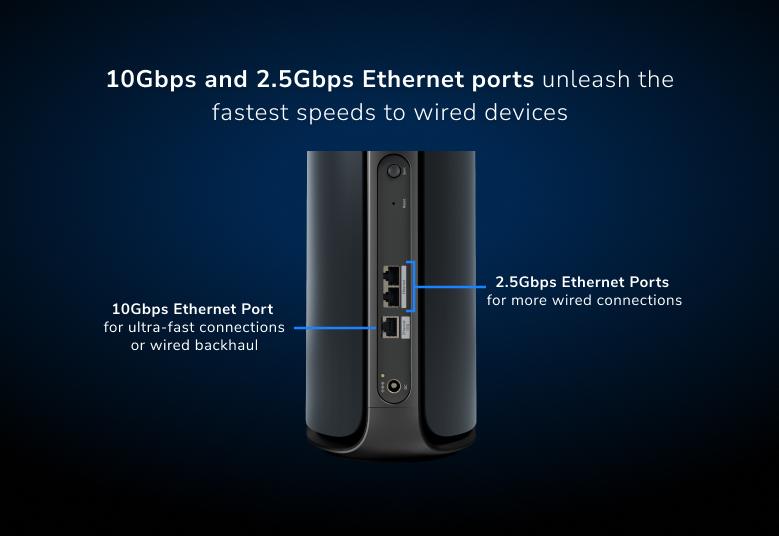
Credit: www.netgear.com
The Pros And Cons Of Wireless Backhaul
| Advantages: | No need for physical cables | More flexibility in satellite placement |
| Disadvantages: | Slower transfer speeds | Prone to interference |
Wired access backhaul typically offers higher bandwidth and faster speeds than wireless access backhaul, making it more suitable for high-bandwidth applications. On the other hand, wireless backhaul routers offer slower transfer speeds due to their lower maximum bandwidth. They also share network spaces between users, which further slows down transmission. Moreover, wireless backhauls are more prone to interference compared to wired backhauls.
When it comes to physical connections, Orbi satellites can connect wirelessly or through Ethernet cables to the Orbi router or another satellite. Using Ethernet cables can provide better performance and stability in a wired connection, especially in scenarios where running a long Ethernet cable is impractical.
In conclusion, the choice between wired and wireless backhaul depends on the specific requirements of your setup. Wired backhauls offer faster speeds and more stability, while wireless backhauls provide flexibility in satellite placement. Consider your bandwidth needs and potential interference factors to make an informed decision.
How To Connect Orbi Satellites
| Your Orbi satellite automatically connects wirelessly to your Orbi router or another Orbi satellite to create a wireless backhaul, or you can use an Ethernet cable to connect your satellite to your router or another satellite to create a wired backhaul connection. Compared to its wired counterpart, the wireless backhaul router offers slow transfer speeds due to its lower maximum bandwidth. Also, it shares the network spaces between users, which also slows the transmission down. Wireless backhauls are more prone to interference when compared to wired backhauls. | Wired backhaul: use of Ethernet cables |
|
Your Orbi satellite automatically connects wirelessly to your Orbi router or another Orbi satellite to create a wireless backhaul, or you can use an Ethernet cable to connect your satellite to your router or another satellite to create a wired backhaul connection.
Compared to its wired counterpart, wireless backhaul router offers slow transfer speeds due to its lower maximum bandwidth. Also, it shares the network spaces between users, which also slows the transmission down. Wireless backhauls are more prone to interference when compared to wired backhauls. | You might want to connect devices to your Orbi satellites’ Ethernet ports if you need the performance and stability of a wired connection, but it’s impractical to run a very long Ethernet cable back to your Orbi router. |
Considering Performance And Stability
In terms of performance and stability, connecting devices to Orbi satellites’ Ethernet ports offers the advantage of a wired connection. Wired access backhaul typically provides higher bandwidth and faster speeds compared to wireless access backhaul, making it more suitable for high-bandwidth applications. This means that if you require the performance and stability of a wired connection, but it’s not practical to run a long Ethernet cable back to your Orbi router, connecting devices to the Orbi satellites’ Ethernet ports can be a viable solution.
Compared to wireless backhaul, wired backhaul provides a more reliable and consistent connection as it is not prone to interference like wireless backhaul. Wireless backhaul routers often have slower transfer speeds due to lower maximum bandwidth and can experience slowdowns when network spaces are shared between users. On the other hand, a wired backhaul connection ensures a dedicated and stable connection for your devices.
In summary, if you prioritize performance and stability, connecting devices to the Orbi satellites’ Ethernet ports can provide a reliable and consistent wired connection. This is especially useful when running a long Ethernet cable back to the Orbi router is not feasible.
Why Choose Ethernet Backhaul
When it comes to achieving performance and stability without long Ethernet cables, choosing Ethernet backhaul is an excellent option. Wired access backhaul typically offers higher bandwidth and faster speeds than wireless access backhaul, making it more suitable for high-bandwidth applications. The use of wired backhaul ensures a reliable and consistent connection, avoiding potential interference issues that wireless backhaul might face. With Ethernet backhaul, you can connect your Orbi satellite to your router or another satellite using an Ethernet cable, providing the performance and stability of a wired connection. This is especially beneficial when it’s impractical to run a very long Ethernet cable back to your Orbi router. By utilizing the Ethernet ports on your Orbi satellite, you can enjoy the advantages of a wired connection without the limitations of distance.
Enhancing Reliability In The Long Term
When it comes to enhancing reliability in the long term, the dependability of a wired backhaul is crucial. Wired access backhaul offers higher bandwidth and faster speeds compared to wireless access backhaul, making it more suitable for high-bandwidth applications. Additionally, a wired backhaul connection provides more stability and better performance, ensuring consistent connectivity even under heavy loads. On the other hand, wireless backhaul routers may experience slower transfer speeds due to lower maximum bandwidth and are more prone to interference. They also share network space, which further slows down transmission. Therefore, for a reliable long-term solution, opting for a wired backhaul is recommended. Connecting devices to Orbi satellites’ Ethernet ports allows for the performance and stability of a wired connection without the need for long Ethernet cables running back to the router.
Exploring The Role Of Ethernet Backhaul
| Is wired or wireless backhaul better? | |
| Bandwidth and Speed: | Wired access backhaul typically offers higher bandwidth and faster speeds than wireless access backhaul, making it more suitable for high-bandwidth applications. |
| Is Orbi’s backhaul wired or wireless? | |
| Your Orbi satellite automatically connects wirelessly to your Orbi router or another Orbi satellite to create a wireless backhaul, or you can use an Ethernet cable to connect your satellite to your router or another satellite to create a wired backhaul connection. | |
| Is wireless backhaul worth it? | |
| Compared to its wired counterpart, the wireless backhaul router offers slow transfer speeds due to its lower maximum bandwidth. Also, it shares the network spaces between users, which also slows the transmission down. Wireless backhauls are more prone to interference when compared to wired backhauls. | |
| Is it better to connect Orbi Satellite with Ethernet? | |
| You might want to connect devices to your Orbi satellites’ Ethernet ports if you need the performance and stability of a wired connection, but it’s impractical to run a very long Ethernet cable back to your Orbi router. | |
| What’s the point of an Orbi setup using Ethernet backhaul? | |
| There will always be more stability and reliability with an Ethernet backhaul in an Orbi setup. It allows for faster speeds and higher bandwidth, making it ideal for high-bandwidth applications. Additionally, connecting devices to the Ethernet ports on your Orbi satellites provides the performance and stability of a wired connection without the need for long Ethernet cables. Overall, Ethernet backhaul offers a more robust and dependable solution for optimizing your Orbi network. |
Frequently Asked Questions Of Orbi Wired vs. Wireless Backhaul
Is Wired Or Wireless Backhaul Better?
Wired backhaul is better than wireless backhaul for higher bandwidth and faster speeds. Wired connections offer more stability and performance compared to wireless ones. Ethernet backhaul can significantly improve the performance of your Orbi WiFi system if your devices are placed far apart.
Is Orbi Backhaul Wired Or Wireless?
The Orbi backhaul can be either wired or wireless. The satellite can connect wirelessly to the router or another satellite to create a wireless backhaul. Alternatively, you can use an Ethernet cable to connect the satellite to the router or another satellite for a wired backhaul connection.
Is Wireless Backhaul Worth It?
Yes, wireless backhaul is worth it. It offers slower transfer speeds and is more prone to interference compared to wired backhaul. Wired backhaul provides higher bandwidth and faster speeds, making it more suitable for high-bandwidth applications.
Is It Better To Connect Orbi Satellite With Ethernet?
Connecting your Orbi Satellite with Ethernet offers better performance and stability for devices that require a wired connection. It’s a practical solution when running a long Ethernet cable back to your Orbi router is not feasible. Additionally, wired backhaul generally provides higher bandwidth and faster speeds compared to wireless backhaul.
Conclusion
To summarize, the decision between wired and wireless backhaul ultimately depends on your specific needs and preferences. While wired backhaul offers higher bandwidth and faster speeds, wireless backhaul provides more flexibility in terms of placement. Both options have their pros and cons, so it’s important to weigh them against your requirements before making a choice.
Regardless of which option you choose, the Orbi system provides a reliable and efficient network solution for your home or office.
